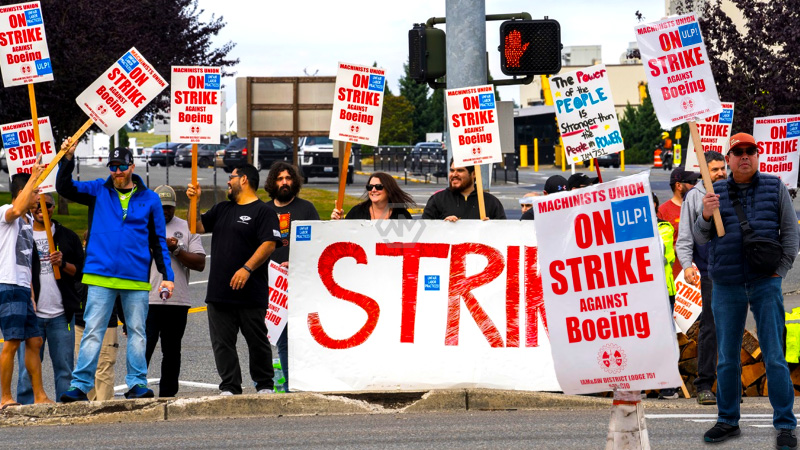- Over 1,000 workers strike at Samsung‘s Chennai plant demanding higher wages and union recognition.
- Samsung warns striking workers of wage cuts and possible termination.
- The strike impacts Samsung’s contribution to India’s $12 billion electronics revenue.
Samsung Electronics has escalated its response to the labor strike at its Chennai plant by warning workers that they will not receive wages during the protest and may face termination.
Despite the strike, Samsung has refused to recognize the workers’ union, particularly one supported by the influential labor group CITU. Efforts to mediate the dispute through talks with state officials have yet to succeed.
Samsung Labor Strike Deepens Amid Wage Dispute and Union Conflict
The labor strike at Samsung’s Chennai factory has now entered its second week, with over 1,000 employees continuing to demand wage increases and formal recognition of their union. The protest, which began on September 9, has significantly impacted production at the facility, where appliances like TVs and refrigerators are manufactured. The factory is a vital part of Samsung’s India operations, contributing substantially to the company’s revenue in the country.
In response to the strike, Samsung issued a stern warning to workers, informing them that they would not be paid for the duration of the protest. The company also threatened termination if employees failed to return to work within four days. Samsung’s email to the workers stressed that the strike was illegal, calling on them to resume work as soon as possible.
The workers, however, remain resolute in their demands. Backed by the powerful labor group CITU, they are pushing for an increase in their monthly salaries from 25,000 rupees to 36,000 rupees over the next three years. This labor conflict underscores the larger struggle for better wages and working conditions within India’s expanding manufacturing sector, especially as it strives to attract foreign investment.
Samsung has so far resisted recognizing any union affiliated with national labor groups, a move that has further frustrated workers. The ongoing strike represents a potential setback for India’s “Make in India” campaign, which is aimed at boosting the country’s electronics production and positioning India as a global manufacturing hub.
The escalating labor strike at Samsung’s Chennai plant not only highlights the company’s rigid stance on union recognition but also poses a challenge to India’s aspirations to attract foreign investment and expand its manufacturing sector. Resolving this conflict will be crucial for both Samsung and the workers, as it may set the tone for future labor relations in the region.
“An injury to one is an injury to all.” — This quote resonates with the collective action of the striking workers, as they fight for improved wages



